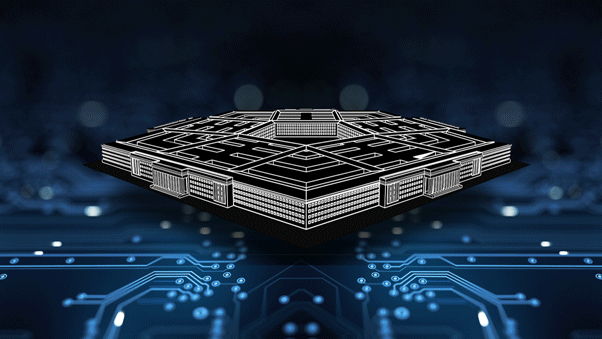Artificial intelligence changing modern warfare
Modern warfare is evolving rapidly, with the integration of artificial intelligence becoming crucial to outpace America’s adversaries. The race for AI supremacy is a key focus to deter potential threats. Palantir CEO Karp emphasized the importance of ramping up defense tech startups to develop cutting-edge software-defined weapons systems that instill fear in adversaries. Failure to lead this AI race could mean conceding dominance to Russia and China.
Concerns about AI potentially leading to autonomous killer robots disrupting the “kill chain” process have raised calls for regulation. However, the U.S. boasts an advantage in artificial intelligence. Keeping this edge is vital to prevent any misuse of AI technology.
Adversaries like Russia and China have shown little regard for international norms or human rights on the battlefield, putting the onus on the U.S. to maintain its leadership role. Karp stressed the significance of establishing a world order that aligns with American interests rather than allowing adversaries to dictate new norms.
As software companies continue showcasing their AI tools to U.S. military officials, the focus on speed has intensified. Processes that used to take days or weeks can now be completed within minutes, enhancing operational efficiency significantly.
In the era of drone swarms, identifying available weapons stockpiles quickly becomes crucial to defending U.S. interests globally. Maverick, an AI-generated target effector, streamlines target prioritization and decision-making processes.
Companies like Govini have been following Palantir’s lead in demonstrating the capabilities of their AI software. For instance, Govini’s Ark software can identify potential supply chain vulnerabilities within the Defense Department, essential for countering threats effectively in regions like the Indo-Pacific.
AI-enabled software is also improving the lethality and efficiency of existing weapons systems, showcasing the transformative power of AI in modern warfare. Joint Chiefs Chairman Gen. C.Q. Brown Jr. reiterated the urgency of maintaining AI superiority over adversaries like China and Russia to secure U.S. interests effectively.
The potential of AI extends beyond defense as Capitol Hill recognizes its broader applications. A bipartisan group of senators, led by Sen. Chuck Schumer, introduced a report urging substantial investment in AI development over the next three years. This allocation aims to leverage AI for medical advancements and technological innovation beyond defense purposes.
Addressing concerns about AI dominance, Karp acknowledged the need for establishing laws to regulate AI development. He emphasized the importance of integrating AI technologies into the DOD’s warfighting systems promptly to showcase unprecedented capabilities on the battlefield.








